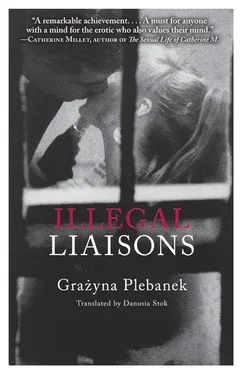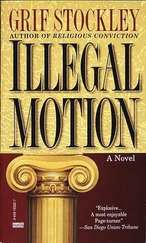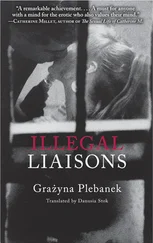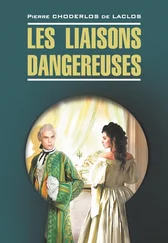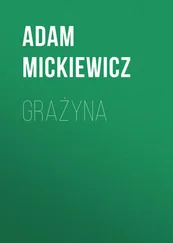“And as for being Polish …” She lost herself in thought. “We’re the first lot to have been able to leave Poland really out of choice. Not because of money but because we’re curious about the world.”
“Stefan says that those who are here miss Poland.”
“Nah.” Megi tipped the beer bottle. “Ask any of them if they’d go back. Just ask!”
Megi watches Jonathan walk up to Andrea, start to undress her. He rubs against her olive skin with teasing slowness, drills her groin with his tongue, examines her nipples with his fingers, sucks her ear lobes and whispers something, but what? Megi can’t hear because she’s saying something herself .
“Jo … Jon …” Megi’s words turn to dust, choke her; she spits, “Yyyyuuuuck, eeeh!”
“Shhh, shhh,” she hears the voice on the other side of the bed. She sits up, drenched in sweat. Above her is the window, a calendar hangs on the wall, days ordered into a uniform grid. There’s no way to say whether one is better than another, she is the only one who knows – once they’ve passed .
Megi lies on her back; anger runs through her body, explodes in her lower belly. She’s the one he should be making love to in that way! Megi wants him to put it in her pussy and press his hips against her buttocks. That’s what she wants!
But how can she get through to Jonathan when he’s asleep, lost in dreams about himself – everything’s about Jonathan, through Jonathan’s eyes. Hey, I’m here, too, listen to me, hear me, be – obedient!
But he sleeps on, his mouth half open, his breath stale, as happens at night, down below an erection, perhaps. A dark shape, a man .
THE GRASS SMELLED GOODin Geert’s story. Jonathan read the beginning several times and each time was struck by the fact that there was no continuation.
“What happened next?” he asked yet again; Geert looked at him helplessly.
“That’s the best question possible,” sighed Ariane, straightening herself on the chair.
Jonathan thought that if texts were to reflect a writer’s personality, hers ought to be full of details, although a little angular. But when he picked up what she’d written during the Christmas break, he couldn’t conceal his surprise. Something tender had crystallized, which he’d have believed more likely to come from Kitty had she been more daring in her range of subjects. Because this one was strong: the story of a dying peasant who reaches the decision to reconcile himself with his son.
“Ariane,” he said, placing the pages on the table. “This is something entirely new to you. Where did the story come from?”
Ariane smiled, pleased. Jean-Pierre observed her with curiosity, Kitty with attention.
“Did writing a diary help?” Kitty asked affirmatively.
Ariane nodded her head again.
“In what way?” Jonathan glanced at the text. “Surely this hasn’t got anything to do with your own experience.”
“That’s exactly why,” said Ariane. “I had a lot of personal stories in me and finally found a place for them. But not here.” She indicated the pages in front of Jonathan.
Geert opened his mouth as if wanting to say something but decided against it.
“Your grass smells good,” Jonathan addressed him.
“And if something smells good to you it means you love it,” added Kitty.
Jean-Pierre laughed; Ariane tossed back her thick hair.
“It’s true,” she joined in. “As long as you want to kiss someone, there’s feeling. The smell is what’s most important.”
Jean-Pierre looked at her hesitantly; in the end, he reluctantly agreed.
“That’s why Geert finds it hard to continue,” concluded Ariane. “When you love something, you don’t know how to write about it.”
“You think so?” asked Jonathan.
“Look at my protagonist,” Ariane joined in. “I don’t love this peasant, he’s an old tyrant.”
“But there’s tenderness in the text,” noted Jonathan. “It’s clear that you’re indulging the main character, there’s no straightforward ‘you I like but you I don’t.’ All the arguments are in the son’s favor yet it’s the father we pity.”
“According to your theory,” Jean-Pierre spoke out, “Geert ought to fall out of love with his Congo.”
“That would be ideal,” replied Jonathan. “But the rule’s hard to apply when it comes to childhood memories. You can’t avoid love there. It’s present, childishly stubborn.”
“We haven’t been of much help to you,” Ariane addressed Geert.
“Thanks to you I know why grass smells good,” he said quietly.
After his class, Jonathan made his way through the park as usual. He pondered what had been said at the lesson. Would he be able to describe Andrea? And the trees in Brussels? He looked at his cell and, with a sigh, slipped it back into his pocket. She hadn’t sent a single message in the past few hours.
When a message finally did arrive, Jonathan’s mind had initially fixated on trying to understand how he’d never thought about what would happen if they were caught. All these months he’d subconsciously ignored Simon’s existence. As for Megi, there was a place assigned for her in this whole configuration. In his eyes his wife was understanding, as if she knew what was happening to him, and had accepted both him and the situation in which he found himself – and that he’d found himself in it because he had no choice. She was his friend. He’d always told her so many things. And what he didn’t say, she ought to understand.
Simon was beyond the scope of his feelings and, therefore, predictions. Jonathan rarely came across him because Andrea liked to go to parties by herself, which made her seem all the more available. When they made love, she belonged only to him, everything was theirs, nothing of her permanent relationship infiltrated, so that he began to suspect that Andrea’s marriage was celibate.
The message which arrived just as Jonathan was about to insert the key into his front door consisted of three words: “Simon’s found out.” For a moment, Jonathan stood rooted to the doormat, listening to the familiar sounds within: Antosia chasing Tomaszek because he’d swiped her eraser, Megi shouting over both of them, her voice mixed with the clatter of pans. A moment longer and a frying pan would go crashing or she’d scream.
Jonathan turned and quietly descended, not waiting for the noisy finale. He rested against one of the trees in the street. The buds would blossom when the time was ripe, over one night. When, at Megi’s request, Jonathan had finally taken a photograph of the flowering trees, he’d noticed that each tree carried a tiny shield. Like numbered pedigree dogs, the trees stood and blossomed obediently. Then their petals fell in order to turn the glory of color over to other trees, planted on neighboring streets.
But now Simon had found out! Jonathan imagined his children and Megi in the impending snowstorm and was overcome with fear. “Ay, ay!” A lament rose within him, and an invisible punch below the ribs deprived him of breath. What had he done – what on earth had he done?
“Simon’s found out,” Jonathan threw at his phone.
“Wait,” grunted Stefan, his voice disappearing somewhere.
“What are you doing?”
“Lifting weights,” he panted. “Repeat what you’ve just said. I can’t hear anything, they’ve got MTV on nonstop.”
“Simon’s. Found. Out.”
Pounding music and the squeaking of machinery came through the telephone.
“Now, did you hear?” Jonathan turned in the street like a spinning top.
“But how?”
Jonathan thought he should have phoned somebody quicker off the mark.
Читать дальше
